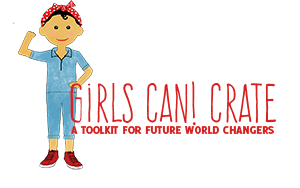An archaeologist is something of a detective, a puzzle solver if you will. They dig into more than just dirt. They dig into the lives of those who came before us. By revealing artifacts, they try to piece together answers to questions like how, who, what, and why. They do this so that we can learn about those who came before us and laid the foundation of our world. Imagine my surprise then that we would become quasi-archaeologists oh so many months ago as we began to look into the life of Bertha Parker Pallan, our Self-Starting Archaeologist. A woman of Abenaki and Seneca descent herself, Bertha dug into the past of indigenous people. She was a woman who over the course of her archaeology career uncovered incredible artifacts and even a civilization. And yet, hers is a life story that nowadays is seemingly buried. Let's bring her story to the surface, shall we?
Born to an archaeologist father and actress mother, Bertha grew up around archaeology. (It's even said that she was born in a tent on one of her father's digs!) She knew something of archaeology. Her own archaeology career began when her uncle, an archaeologist, hired Bertha to work as a cook and expedition secretary on a dig in Nevada. Bertha joined the dig where she watched, she listened, and she basically taught herself how to be an archaeologist. While Bertha had no formal training or education, she paid attention and learned all that was necessary. And it was this attention to detail that led her to discover a pueblo site while taking a walk in the desert with her daughter. Imagine that will you? Imagine walking and discovering a site that had belonged to indigenous peoples hundreds and hundreds of years ago. I don't know about you, but when I'm walking in the desert (being in Arizona and all that) I'm just watching for snakes and other creepy crawly things. Not Bertha. She'd learned the importance of observation. Again, it's ironic that a woman who clearly paid close attention to detail has been covered over.
Why do I say this? I say this because in my initial research about Bertha Parker Pallan's life there were very few articles dedicated to her and her work. I've only found 1-2 photos of her. That couldn't be it, could it? This was a woman who participated in a dig that uncovered what is thought to be the oldest known civilization in the United States. Surely that's noteworthy, that's significant, that's memorable. And yet, there's not much out there about her or any of the sites that she'd excavated. So I took a lesson from Bertha and I began to dig. Do you know what I found? I found her buried in the pages of books written by the men who were on digs with Bertha. They spent a page or two remarking on the remarkability of Bertha and her contributions to archaeology. I found her buried in dig records. I found her here and there in asides and passing comments. Again, how is this possible? How has this woman been so buried?
Bertha was a Native American woman who'd uncovered great Native American treasures. She went on to work at the Southwest Museum as a curator and wrote articles for them about their collections. Later, she and her husband hosted a television program about Native American art and artifacts. She even worked in Hollywood with directors of movies and television to ensure that their portraly of Native Americans was honoring and accurate. And so it saddens me to know that her story and name aren't more widely known.
So this, this is why we wanted to feature Bertha Parker Pallan specifically in this month's box. We wanted her story uncovered, excavated, and brought out for the world to know. We want little girls who may have an interest in uncovering the mysteries of the past to know that there are women who've done that very thing. We want girls to know that if they have an interest in something, they don't have to have a formal education or training to learn more about it. We want little ones to be inspired by Bertha Parker Pallan and her contributions to bringing the lives of those who'd gone before to the surface. And we hope to do the same for her story.


